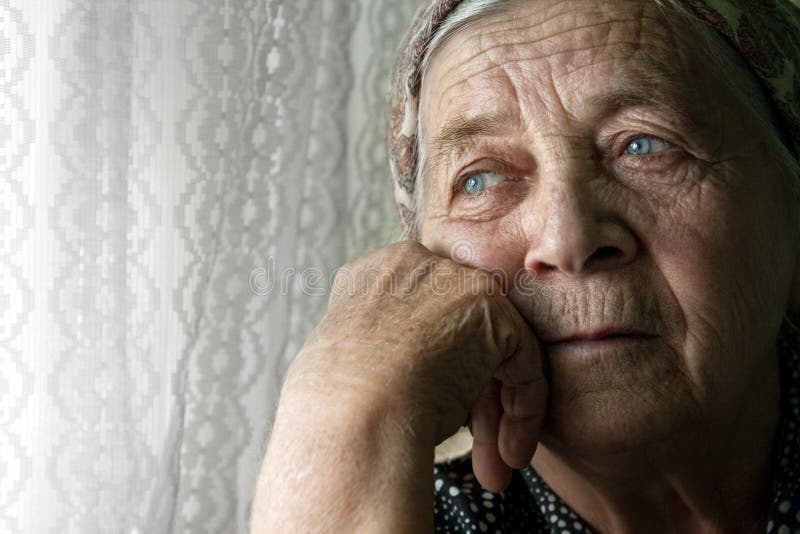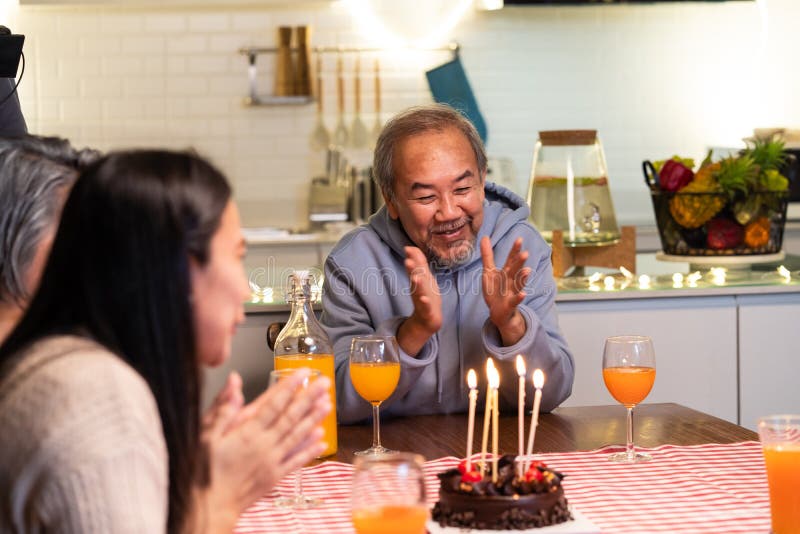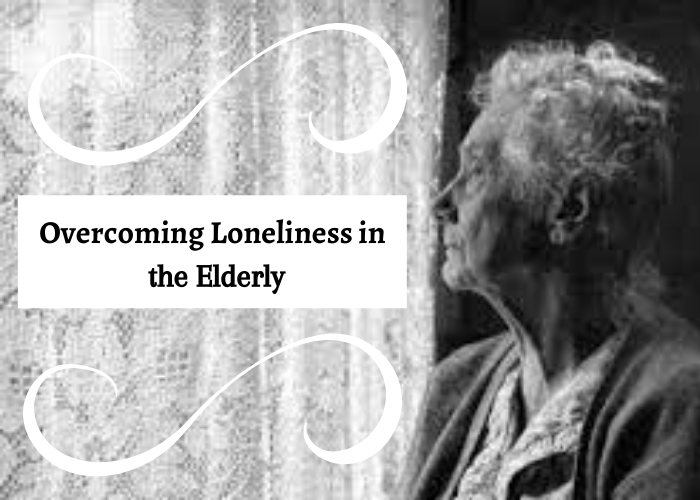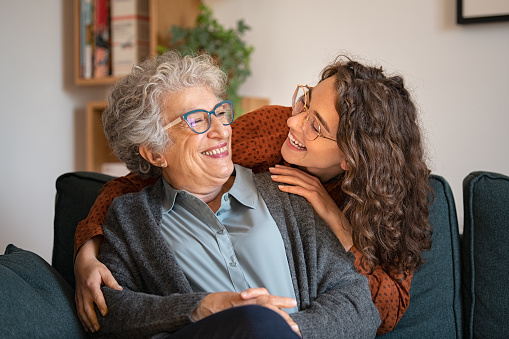Contents
Importance of Finding Ways to Overcome Loneliness in the Elderly:
Loneliness presents one of the major global problems, especially during the current Covid-19 situation and the imposed safety measures. According to the World Health Organization, depression is one of the most common mental problems. Many factors contribute to elderly loneliness, including the death of loved ones, absence of family visits, and others. How can you overcome loneliness in the elderly loved ones in your life?
Loneliness, in general, can be combatted by a simple call and even a quick hug when needed. You can help reduce loneliness in the elderly by talking or listening to your loved ones. This article will discuss how supporting lonely elderly parents can make your life and your parents happier and more fruitful.
Loneliness in the Elderly Definition:

It’s important to overcome loneliness in the elderly!
Loneliness is the feeling of isolation despite wanting social connections. People commonly describe loneliness as an unpleasant response to isolation. Loneliness in the elderly is similar and yet can be much worse.
Due to advanced age, a senior’s control over their emotions becomes weaker. Because of this, a lot of elderly often end up with occasional emotional outbursts. These outbursts don’t necessarily mean they shout or express it outwardly to people. The elderly tend to isolate themselves more, leading to despair, loneliness, and wanting to connect.
According to Robert S. Weiss in his work, Loneliness: The Experience of Emotional and Social Isolation, there are two main categories of loneliness, social and emotional loneliness.
Types of Loneliness:
Social Loneliness
Lack of quality friendships or familial relationships might lead to feelings of loneliness or isolation. Social loneliness refers to unwelcome and unpleasant isolation. A person who feels social loneliness can feel cut off from regular social networks, resulting from a lack of mobility, unemployment, or health problems.
The elderly experiencing this kind of loneliness tend to live alone, but can’t stand to be alone. The lack of social interaction and connection can easily lead to depression and loss of motivation in doing anything. That is why you need to keep an eye out for your elderly loved ones. Try to establish a routine of sharing your day with them or having them join in your family activities with your kids.
Emotional Loneliness
When you need someone to speak to about anything going on in your life, but don’t know who to call, you may experience emotional loneliness. Emotional loneliness is the absence of someone in your life who serves as a caring confidant, someone who acknowledges your existence. Emotional loneliness is the lack of an attachment figure and someone to turn to in one’s life.
The elderly experiencing this often don’t have a basic or even a small circle of friends. However, they still want to find someone who can understand them and confide with them. Emotional loneliness for the elderly can be devastating and difficult to help with since most seniors are stubborn with their perception of everyone else. However, assisting the elderly who have difficulty opening up to others is possible.
In 1997, Enrico DiTommaso and Barry Spinner categorized emotional loneliness into romantic and family loneliness.
When teenagers or adults do not have a close relationship with a romantic partner, they may experience romantic loneliness. According to psychologists, establishing a committed romantic relationship is a critical developmental task for young adults.
However, it is also one that many people put off until their late 20s or later. Because romantic relationships allow for emotional contact, couples are more likely than singles to report feeling less lonely. People who are in unstable or emotionally chilly love relationships can nonetheless experience feelings of romantic isolation.
Romance with elderly adults is not such an unlikely event. Many elderly easily find love since the need for it and companionship will never wane for everyone. However, romantic loneliness for the elderly is different because it is simpler than what young people have. The inherent desire for a genuine, sincere, and lasting emotional connection with another individual except their own family causes the loneliness that the elderly may feel. That is why many older people suffer from romantic loneliness.
Family Loneliness

Because of a lack of deep, caring relationships with other people, emotionally lonely people experience isolation and sadness. In his book mentioned before, Weiss connected his concept of emotional loneliness to the theory of attachment. To feel deeply attached to someone, they must first form a strong bond with them. A strong bond or attachment can be achieved through close friends, but more frequently through immediate family members such as parents.
Seniors who feel isolated from family often lack family interaction. Insecurities resulting from a sense of inadequacy, frequent occasions when the elderly feel unwanted, and other reasons can produce a lack of engagement. That’s why you need to be more sensitive about providing or spending meaningful, honest, and tender bonding moments with your elderly loved ones. Finding ways to overcome loneliness in the elderly in your life may not be easy. However, it is important.
Health Issues Attributed to Loneliness in the Elderly:
Various Health Conditions
According to a study, “The Complexity of Loneliness” by Javier Yanguas et al., feeling lonely shows a strong link to various health conditions, including lung disease, cardiovascular disease, hypertension, heart disease, atherosclerosis, stroke, and disorders, such as obesity and metabolic disease.
Furthermore, a study made by researchers of the University of California San Francisco showed that lonely seniors have a 59% higher risk of physical and mental decline and 45% greater chances of death.
Depression and Insomnia
People who suffer from depression have a constant sense of sadness and decreased interest in activities. Major depressive disorder, or clinical depression, is a mental illness that affects how you feel, think, and behave. Clinical depression can also result in several emotional and physical complications. You may have difficulty carrying out your typical day-to-day tasks, and you may even believe that life isn’t worth living at times.
Insomnia is a chronic sleep condition defined by a persistent inability to fall or stay asleep despite available sleep opportunities. Depression and sleep issues are intimately connected. People who have insomnia, for example, are maybe ten times more likely to develop depression than those who receive a decent night’s sleep. Sleeplessness, or the difficulty to fall and remain asleep, is one of the most frequent symptoms of depression.
More Prone to Dementia
Researchers at Florida State University College of Medicine discovered last year that loneliness increases the risk of dementia by 40%. The study, led by Angelina Sutin, Ph.D., looked at almost 12,000 US seniors. Participants completed a cognitive battery every two years for up to ten years. Indeed, finding ways to overcome loneliness in the elderly might well delay or prevent dementia.
Emotional Effects of Loneliness in the Elderly:
Lack of Motivation

A recent study shows that ambitions, money, and passion drive younger individuals to advance through life. At the same time, older generations are more inspired by their relationships, family, and environment.
People lose their desire to learn new things and participate in daily activities as they become older. Older people may retreat from preferred hobbies and seem to lose interest in life at times. Numerous researches provide that the elderly have more difficulty in maintaining a positive mindset. This degradation is worse when the lack of motivation is due to emotional loneliness.
Being positive or having the disposition is necessary for our social well-being as well as learning. It isn’t easy to learn if you aren’t paying attention and participating. That is why lack of motivation from emotionally lonely elderly is detrimental for elderly loved ones’ mental capabilities and their whole well-being.
Easily Irritated

Seniors often do temper outbursts or tantrums for a variety of causes. It’s often the consequence of personality changes caused by Alzheimer’s disease and other types of dementia.
Normal aging may lead to depression and irritation. Many different events and circumstances may lead to depression for your elderly loved ones. Perhaps a close friend just passed away, or maybe they find it challenging to accept particular physical signs of aging. The change in habit may be due to their age, making it difficult to engage in activities they once enjoyed.
Whatever the case, you need to be patient and calm when addressing these matters. Even if you are angry, afraid, alarmed, or anxious, don’t show it. Expressing these feelings may agitate the elder and complicate and make the issue worse. Use a calm, soothing tone of speech. Recognize the senior’s emotions and pay attention to what they’re trying to say or tell you.
Poor Self-Esteem

As people grow older, they often lose their sense of self-worth. Studies have shown that self-esteem is lowest in young adults and increases throughout adulthood before declining after sixty. At all phases of life, particularly for the elderly, self-esteem is an essential component of the adaptation processes. It impacts a person’s social integration and adaptive capabilities to deal with life’s challenges, such as physical and cognitive deterioration.
Some studies suggest that people may experience several losses during their golden years. One is during the death of a spouse or friend. Another is when retirement from meaningful employment happens. Lastly, when sickness or frailty limits the senior’s freedom of mobility. These landmarks have the potential to undermine one’s self-assurance.
Significant life upheavals may wreak havoc on their sense of control and self-assurance. Increasing your elderly loved one’s self-esteem may help them live longer and more independently. Supporting your loved one’s mental health and providing them a sense of purpose may help them have a more positive self-image.
How to Prevent and Overcome Loneliness in the Elderly:
There are a lot of ways to prevent or overcome loneliness in the elderly. These are some of the ones I know work and will cost you next to nothing. These activities or small acts require only a tiny amount of time and effort.
Keep in Touch Online
Although some of us cannot physically be there for our elderly parents, helping lonely elderly parents is easier with the help of technology. To keep in touch with your older relatives, set up a weekly Zoom call. Also, try assisting your elderly parents in talking to their friends via video call. Better social interaction will tremendously help your elderly loved one ease their loneliness.
Keep in mind that although interacting personally is limited, that shouldn’t stop you from being there for your loved one, even if only online.
Visit More Frequently
If you live in a state where the covid cases are manageable, visiting your parents who live apart from you will help ease their loneliness. Human interaction, which many of our elderly loved ones crave, will significantly be reduced by your constant visits. Research shows that families should visit their elderly relatives at least three times each week.
Would you please pay attention to their recommendations, thoughts, or ideas and tell your elderly loved ones what you think about it? Remember that they are grownups who can compromise and are more understanding than you believe. Try to come to an agreement and commit to abiding by it and taking care that it is beneficial to both of you. However, all that matters is visiting elderly loved ones often to help alleviate loneliness in the elderly.
Help give them a sense of purpose
As we grow old, we tend to have more difficulty performing tasks, especially our elderly loved ones. Helping them regain a sense of purpose will surely help them manage their feeling of sadness and loneliness.
Seniors who have a strong sense of purpose are more likely to live longer. Seniors’ physical, emotional, and mental health may suffer as they age. Maintaining a feeling of purpose in later life, on the other hand, can even have a beneficial effect on your elderly loved one’s health.
Finding a sense of purpose is crucial for elders because it may help them live longer and healthier lives. Research has shown that finding a reason to live may help you live longer. A sense of purpose helps significantly in eliminating feelings of loneliness. Stated, individuals who have a strong sense of purpose live longer than those who do not.
Help them try out a new hobby
Low-quality social connections are the most common causes of loneliness and social isolation among seniors. Hobbies can help in loneliness in the elderly and the development of social ties with others. Also, staying physically and socially engaged is especially essential for seniors. It will keep your elderly loved ones from being bored or lonely and lower the chance of getting health issues.
Having a new hobby often helps ease loneliness. A new hobby enables them to engage in matters they enjoy. Many times this includes meeting new friends.
Research has shown that seniors fight feelings of loneliness, boredom, and social isolation by engaging in activities regularly. Hobbies allow elders to interact, experience something new, and create a stronger feeling of community and a clear sense of purpose.
Have them Volunteer
Helping your elderly loved ones join volunteer associations can significantly reduce their loneliness. Volunteering allows elderly loved ones to gain a sense of purpose and help them engage in the interests they believe in. It has a range of physical and emotional advantages for lonely elders. Another benefit of volunteering is that it helps keeps the brain active while also encouraging physical exercise.
Helping your elderly parent volunteer is another excellent method to retain and express their sense of purpose. According to the National Institute on Aging, participating in meaningful activities can reduce physical health issues in seniors. It will also bring your loved one out of the home and into a social setting. Allowing seniors to Volunteer may help them retain their independence while also preventing them from feeling lonely and isolated.
Exercise and Keep Moving
Can exercise help overcome loneliness in the elderly? Interestingly, studies indicate that any form of exercise and movement does indeed improve mood and help avoid the feeling of loneliness. Whether in a group fitness session or out for a walk with friends, movement helps. Exercising releases endorphins which can significantly increase the happy feeling a body has. Choose an exercise fit for the level of mobility your elderly loved one has. Physical exercise programs or gatherings can indeed decrease loneliness and enhance psychological well-being.
Loneliness and social isolation have links to high blood pressure, high cholesterol, depression, and, as if that weren’t terrible enough, cognitive impairment and Alzheimer’s disease. Moving your muscles is good for your body, but establishing social connections is good for your mind, soul, and relationships. A short walk around the park or even Zumba with your loved ones’ friends will help your elderly loved one become happier and healthier.
Adopt or Rescue a Pet
As the saying goes, “A dog is a man’s best friend.” Although acquiring a pet is not the same as constant human interaction, various research has shown that caring for a pet can give both physical and mental advantages. Caring for a pet can also help alleviate and overcome loneliness in the elderly and in fact, in any age. Most dogs are excellent stimulants for good exercise, which can significantly improve your mood and alleviate sadness. Additionally, the happiness and joy a pet brings can dramatically reduce the empty feeling of anyone’s home.
Final Thoughts
Patience, love, and finally, compassion are what matter when you have elderly loved ones. Our elderly loved ones are more likely to encounter issues such as living alone, the death of family or friends, chronic disease, etc. Loneliness, which is already known to be bad for our health and especially our mental health, is worse for us, the elderly.
Although it is difficult to quantify social isolation and loneliness, substantial evidence exists showing these two conditions put older people’s health at risk. In fact, helping overcome loneliness in the elderly offers important benefits for both physical and mental health. Hopefully, in this article, I was able to show and help provide the necessary information in caring for your elderly loved ones.
Depression from feeling lonely and isolated is a scary and heartbreaking thing to have. The reality of families and the children growing up and moving away will always be a harsh yet comforting truth. Difficult because the change of having a house filled with activity, of children’s laughter and guests coming and going can and will change into a quieter setting later on in life. However, it is comforting to know that no matter how empty a place may feel, you can find a home in the people you love and care about. In helping to overcome loneliness in the elderly, you need to show patience, love, and compassion constantly.
READ MORE:










